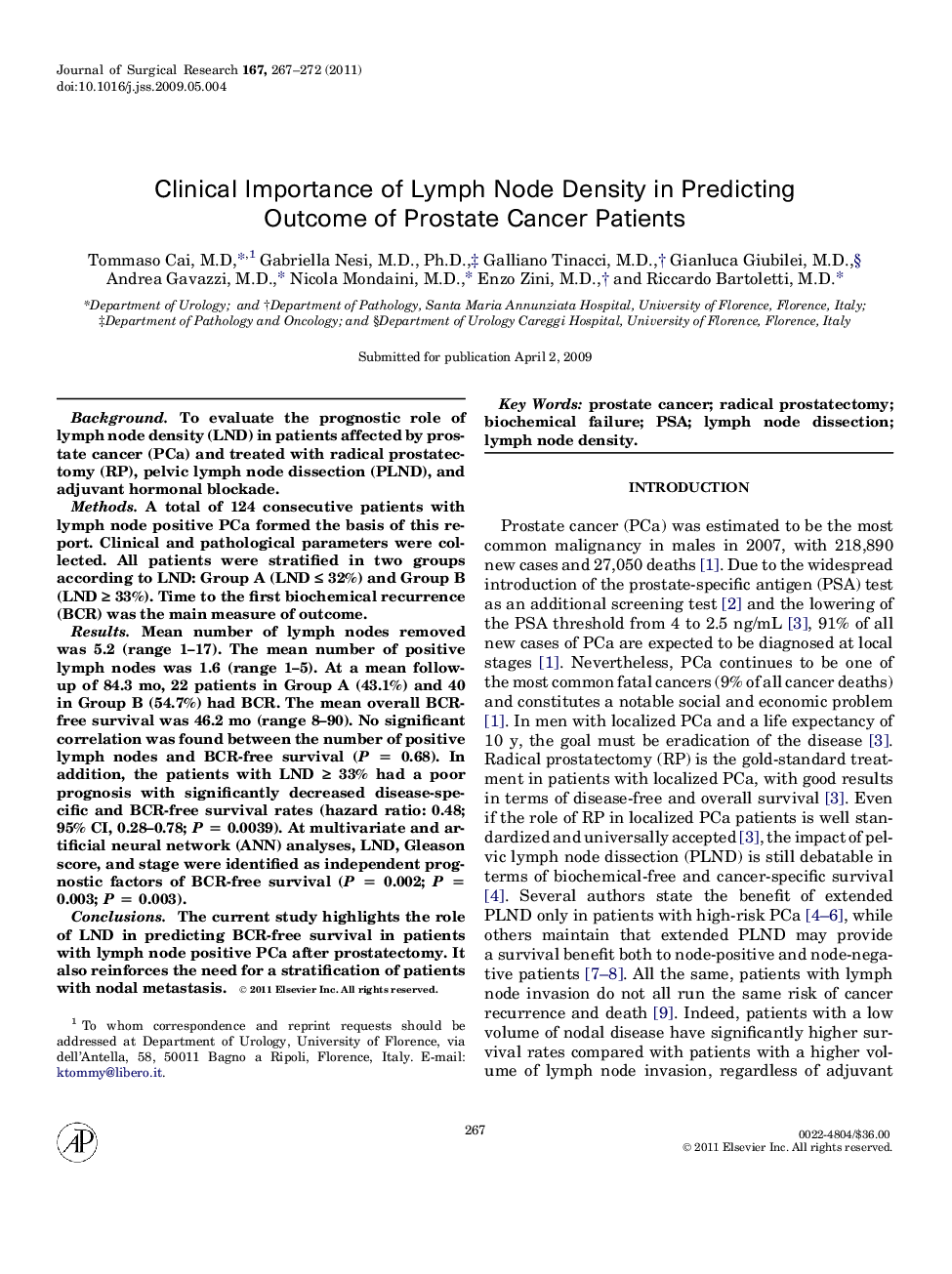| Article ID | Journal | Published Year | Pages | File Type |
|---|---|---|---|---|
| 4302537 | Journal of Surgical Research | 2011 | 6 Pages |
BackgroundTo evaluate the prognostic role of lymph node density (LND) in patients affected by prostate cancer (PCa) and treated with radical prostatectomy (RP), pelvic lymph node dissection (PLND), and adjuvant hormonal blockade.MethodsA total of 124 consecutive patients with lymph node positive PCa formed the basis of this report. Clinical and pathological parameters were collected. All patients were stratified in two groups according to LND: Group A (LND ≤ 32%) and Group B (LND ≥ 33%). Time to the first biochemical recurrence (BCR) was the main measure of outcome.ResultsMean number of lymph nodes removed was 5.2 (range 1–17). The mean number of positive lymph nodes was 1.6 (range 1–5). At a mean follow-up of 84.3 mo, 22 patients in Group A (43.1%) and 40 in Group B (54.7%) had BCR. The mean overall BCR-free survival was 46.2 mo (range 8–90). No significant correlation was found between the number of positive lymph nodes and BCR-free survival (P = 0.68). In addition, the patients with LND ≥ 33% had a poor prognosis with significantly decreased disease-specific and BCR-free survival rates (hazard ratio: 0.48; 95% CI, 0.28–0.78; P = 0.0039). At multivariate and artificial neural network (ANN) analyses, LND, Gleason score, and stage were identified as independent prognostic factors of BCR-free survival (P = 0.002; P = 0.003; P = 0.003).ConclusionsThe current study highlights the role of LND in predicting BCR-free survival in patients with lymph node positive PCa after prostatectomy. It also reinforces the need for a stratification of patients with nodal metastasis.
